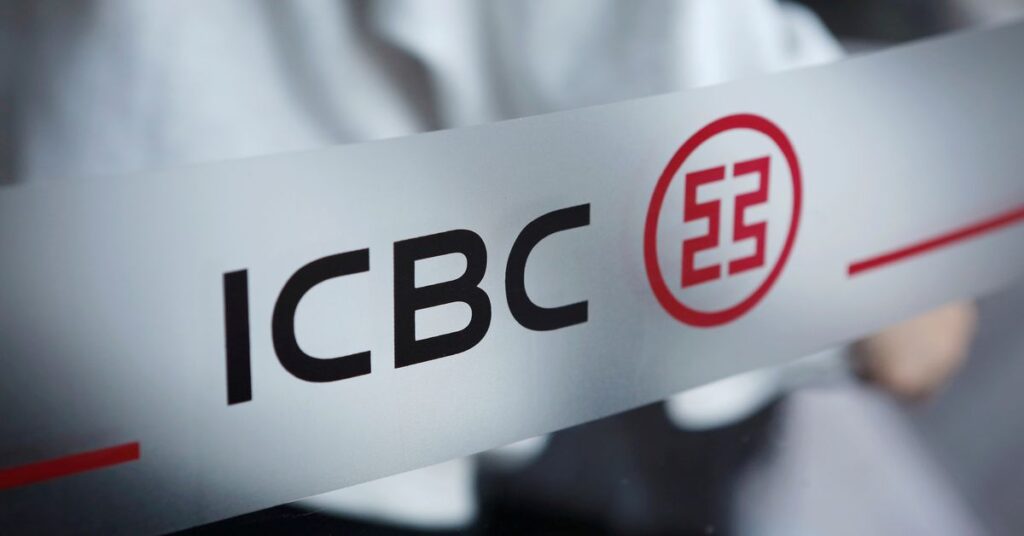BEIJING/SHANGHAI, Aug 31 (Reuters) – 5 of China’s largest banks confirmed wounds from the continuing property sector disaster, with unhealthy money owed linked to actual property surging within the first half of the yr, whilst they posted modest earnings in opposition to the backdrop of an financial slowdown.
The primary-half outcomes come after the world’s second-largest economic system narrowly averted contracting within the second quarter as widespread COVID-19 lockdowns and the slumping property sector badly broken shopper and enterprise confidence.
China Building Financial institution Corp (CCB) (601939.SS) and Financial institution of China Ltd (BoC) (601988.SS), reported a 68% and 20% enhance in unhealthy actual property debt within the first half of this yr on Tuesday in trade filings.
In the meantime, the world’s largest industrial lender by belongings Industrial and Industrial Financial institution of China Ltd (ICBC) (601398.SS) posted a 15% rise in actual property sector soured debt over the identical interval.
Newest Updates
View 2 extra tales
“Affected by the epidemic and the downward strain on the economic system, the present working surroundings of banks is complicated and grim,” vice chairman Wang Jingwu of ICBC stated at a press convention after the discharge of outcomes.
“It’s troublesome for some industries and prospects which are enormously affected by the epidemic and financial cycle to function,” Wang added.
This sentiment was echoed by CCB president Zhang Jinliang on Wednesday at a post-earnings press convention.
“The Chinese language economic system faces pretty massive downward strain this yr,” stated Zhang.
ICBC, BoC and CCB are the newest banks to report rising unhealthy debt in the true property sector, amid a dismal first half wherein rising developer defaults halted housing initiatives, resulting in mortgage boycotts.
The Financial institution of Communications (BoCom) (601328.SS), and Agricultural Financial institution of China Ltd (AgBank) (601288.SS) warnings of warning and ranges of soured loans had been in the same vein.
Harry Hu, a senior director at S&P World Rankings estimates that Chinese language banks’ non-performing ratio within the property improvement sector will rise to round 5.5% to five.6% by year-end, up from a 2.6% sector-wide NPL ratio at end-2021.
Regardless of the mounting unhealthy debt, the state council and regulators are pushing the financial institution to extend lending to the property sector, chief Liu Jin at BoC stated at a separate information briefing on Wednesday.
Mortgage defaults are “not solely a social stability downside, but additionally a possible monetary stability downside, as a result of mortgage is normally good-quality asset of banks,” stated Hu.
At CCB, overdue mortgages attributable to the boycotts hit 1.14 billion yuan on the finish of July, stated Li Yun, vice chairman of the financial institution.
And analysts warn that the housing market flux is extra more likely to hurt smaller lenders.
“Regional banks concentrated in these native markets are extra uncovered to the shock of larger-than-average decline in housing costs,” stated Nicholas Zhu, a banking analyst at Moody’s.
“This might enhance the loan-to-value ratios for the regional banks’ property mortgage portfolio which implies a weakening of the collateralization of property loans, therefore the next asset threat.”
Regardless of the unhealthy loans within the property sector, of the 5 lenders, solely BoC noticed a slight rise in general NPL ratios, as unhealthy debt in different industries slowed or held regular for the lenders.
And all 5 reported between 4.9% to six.3% web revenue will increase within the first half in comparison with a yr earlier.
BoCom, AgBank, ICBC and CCB posted falling web curiosity margins – a key indicator of financial institution profitability, and banks and analysts predict that NIM will proceed to slip.
Chinese language banks’ earnings will proceed to face downward strain, because the falling LPR this yr dampened banks’ curiosity revenue, stated Hu.
($1 = 6.9100 Chinese language yuan renminbi)
Reporting by Ziyi Tang in Beijing, Xie Yu in Hong Kong and Engen Tham in Shanghai, Enhancing by Louise Heavens and Bernadette Baum
: .


